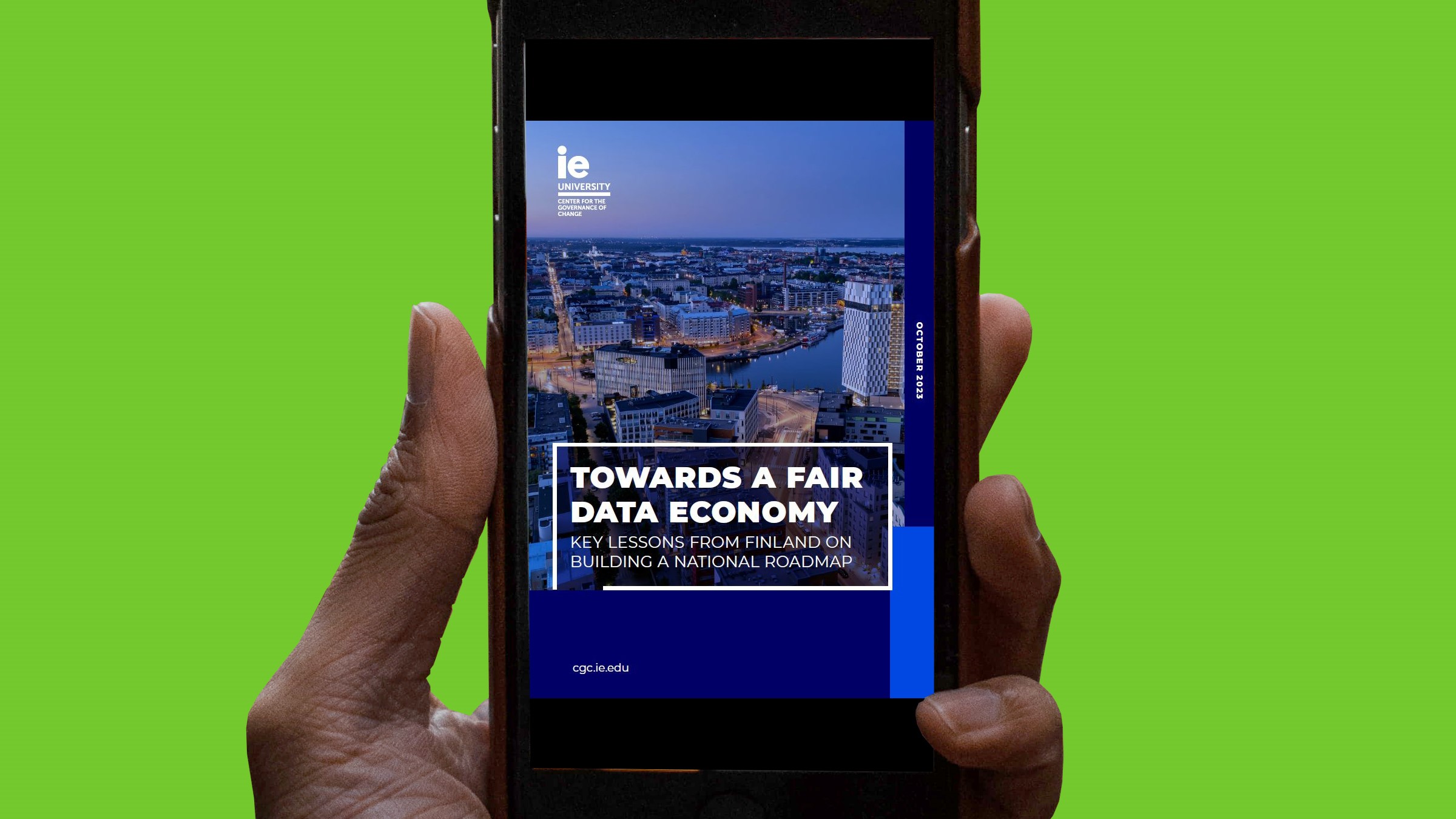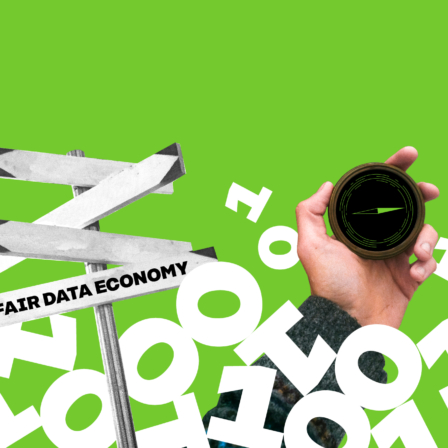In 2022–23, Sitra drew up a national roadmap for a fair data economy for Finland in collaboration with a broad network of experts. The aim was to accelerate the building of a data-driven economy and society, so that competitiveness, well-being and the green transition could be driven forward through the use of data. As part of the roadmap, concrete actions were launched to drive change.
Sitra has led the work on the national roadmap for the data economy since its inception and will continue to do so until 2025. More than 700 experts have participated in the work on the roadmap, which was published in April 2023.
The roadmap work has attracted international interest. The key lessons learnt from the networked roadmap work have been published as an article and policy recommendations in a series of articles in the research program The Digital Revolution and the New Social Contract at IE University, Spain.
From common objectives for change towards concrete reforms
Laura Halenius, Taru Rastas, Meeri Toivanen and Johanna Kippo from Sitra describe in the article how the roadmap process proceeded step by step.
The transition towards a fair data economy was started by first inviting a strong network of key data economy actors from the private and public sectors to join the work and then jointly identifying the key areas where change needed to be made.
The guiding idea was that, when harnessed correctly and with fair rules, data can be used to transform business, boost productivity and well-being, and bring positive impacts on nature. For example, data and AI can be used to improve the quality, efficiency and accessibility of public services and to boost economic growth. However, Finland faces a number of challenges to be able to maximise the benefits of our good data resources.
The network launched more than 20 reforms in selected areas of change to accelerate the building of a data-driven economy. To support experts and policy makers working on the data economy, a tool was developed to monitor the evolution of the data economy.
Key actions have included piloting the introduction of digital product passports, a study on better use of social and health data, and the creation of online courses on EU data regulation.
“The national data economy roadmap process has created a shared common direction between the public and private sectors and increased situational awareness and collaboration among participants,” the authors conclude.
“The result is a unique combination of strategy, purpose, and an action plan with concrete experiments that may be useful not only for policymakers but also for municipalities, companies, universities, non-profit organizations, and individual citizens.”
Three takeaways from the lessons
The chosen approach has proven to be a successful tool for change in a complex phenomenon such as the data economy, where public-private collaboration is needed.
While the roadmap work is still ongoing, three tips can already be given at this stage for building a fair data economy in similar national processes:
- Strengthen collaboration and implementation. The transition to a fair data economy requires a common will, common objectives in strategic priority areas and public-private cooperation. It needs to be supported by coordination, active cooperation between participants and concrete actions such as pilots and collaborative projects.
- Proceed through experimentation. Practical experiments should be used to test the viability and effectiveness of new solutions. These can be used to produce higher quality and more innovative policy measures that are genuinely effective.
- Use metrics to support decision-making. There is still a lack of information on the development of the data economy. Up-to-date information on progress and impact is needed to support decision making. Monitoring tools make progress on strategic priorities visible.
Roadmap work on the data economy has been carried out as part of Sitra’s Roadmap for the Fair Data Economy project, which brings together different stakeholders to identify opportunities in the data-driven economy of the future.
You may also be interested in
Read more
Towards a fair data economy. Key lessons from Finland on building a national roadmap (Policy Paper 11, published by The Digital Revolution and the New Social Contract program of IE University)
Policy Brief: Roadmap for a fair data economy (Center for the Governance of Change, IE University)






